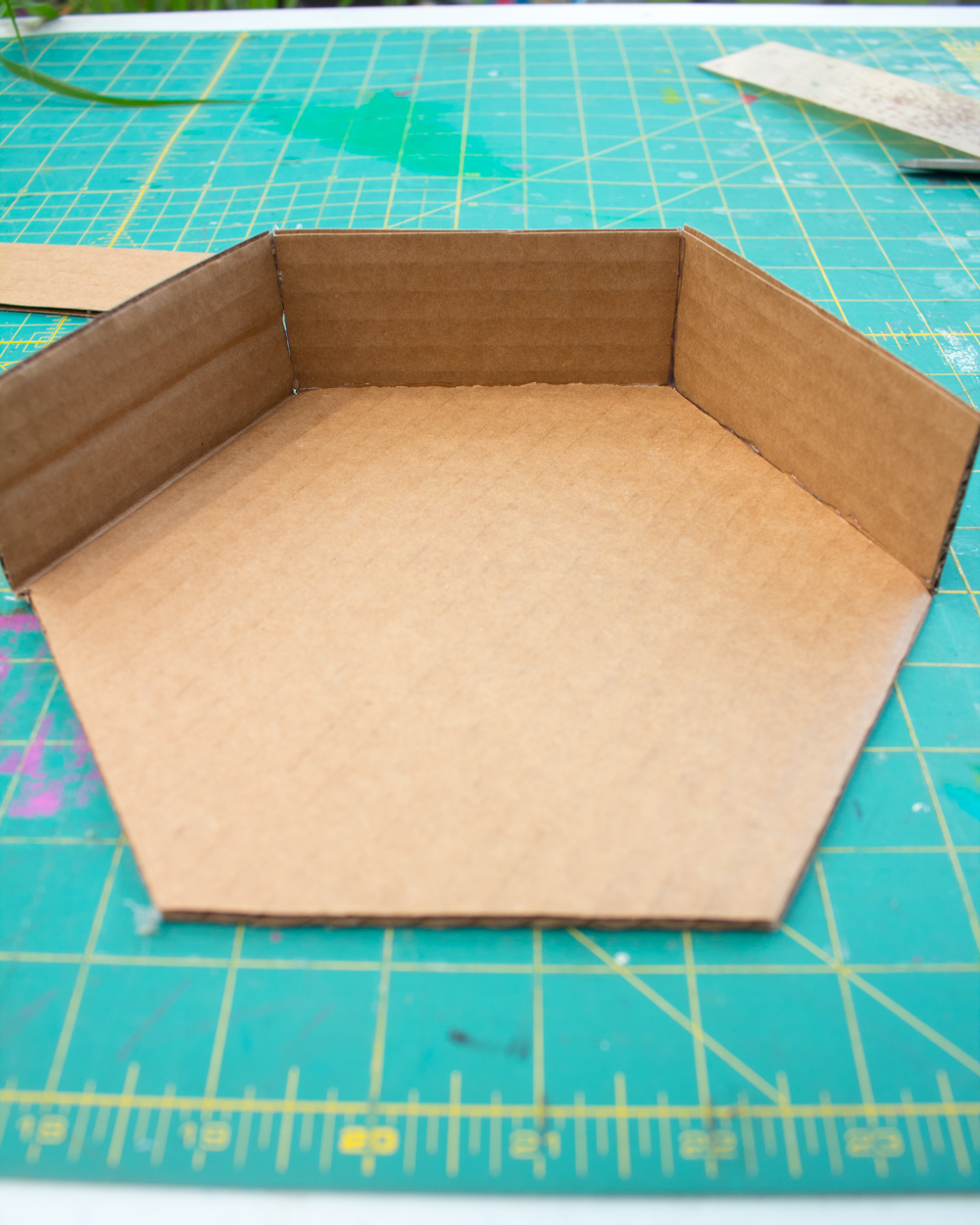This tutorial was originally published on Crafting a Green World.
Do you have a lot of little bits and bobs that like to clutter up some particular surface in your home? A lip balm, three different remote controls, matchbook, and erasable pen that all want to live on the exact same 12"x18" surface of your nightstand, say?
Here's a little pro tip for you: toss all that nonsense in a nice tray, and it's no longer clutter. Because it's CONTAINED!
Bonus points if the tray is handmade, and double bonus points if it's handmade from upcycled materials! Tidying up is MUCH more fun if Wolverine is helping!
These decoupaged cardboard trays are some of my favorite things to make. Other than the glue, all the supplies come from the recycling bin, but you'd never know it because these trays are as cute as they're handy. The decoupaged paper makes them surprisingly sturdy, and I LOVE being able to embellish them exactly the way I like. You do have to wait for stuff to dry a few different times, but the actual hands-on time for this project is also quite low, making it easy to make multiples or to spend a little extra time to make one crazy-elaborate, fancily perfect tray.
Supplies & Tools
Here's what YOU need to make your own decoupaged cardboard tray!- Corrugated cardboard. Look for pieces that are clean and uncreased. I use Girl Scout cookie cases for EVERYTHING, so that's what's going on here, but I've also spent my pandemic staycation being kind of grossly consumerist, so I can also tell you that Zappos and Amazon boxes work well, too.
- Cutting and measuring tools. I use a self-healing cutting mat, metal ruler, x-acto knife, and scissors.
- Hot glue. I've just realized that the hot glue gun I've used for my entire adult life is a low-temp version. What magic can one do with a high-temp glue gun?!?
- Papers for decoupage. You can decoupage nearly any paper, although for this project since we're partly relying on the paper to add to the tray's strength, you'll want to avoid tissue paper, napkins, or paper products of similar weight.
- White glue. I use Mod Podge or Elmer's with a little water mixed in.
- Polyurethane sealant. Look for a water-based, clear sealant
Directions
1. Cut Your Pieces from Corrugated Cardboard
3. Hot Glue All the Sides to the Tray Bottom











No comments:
Post a Comment